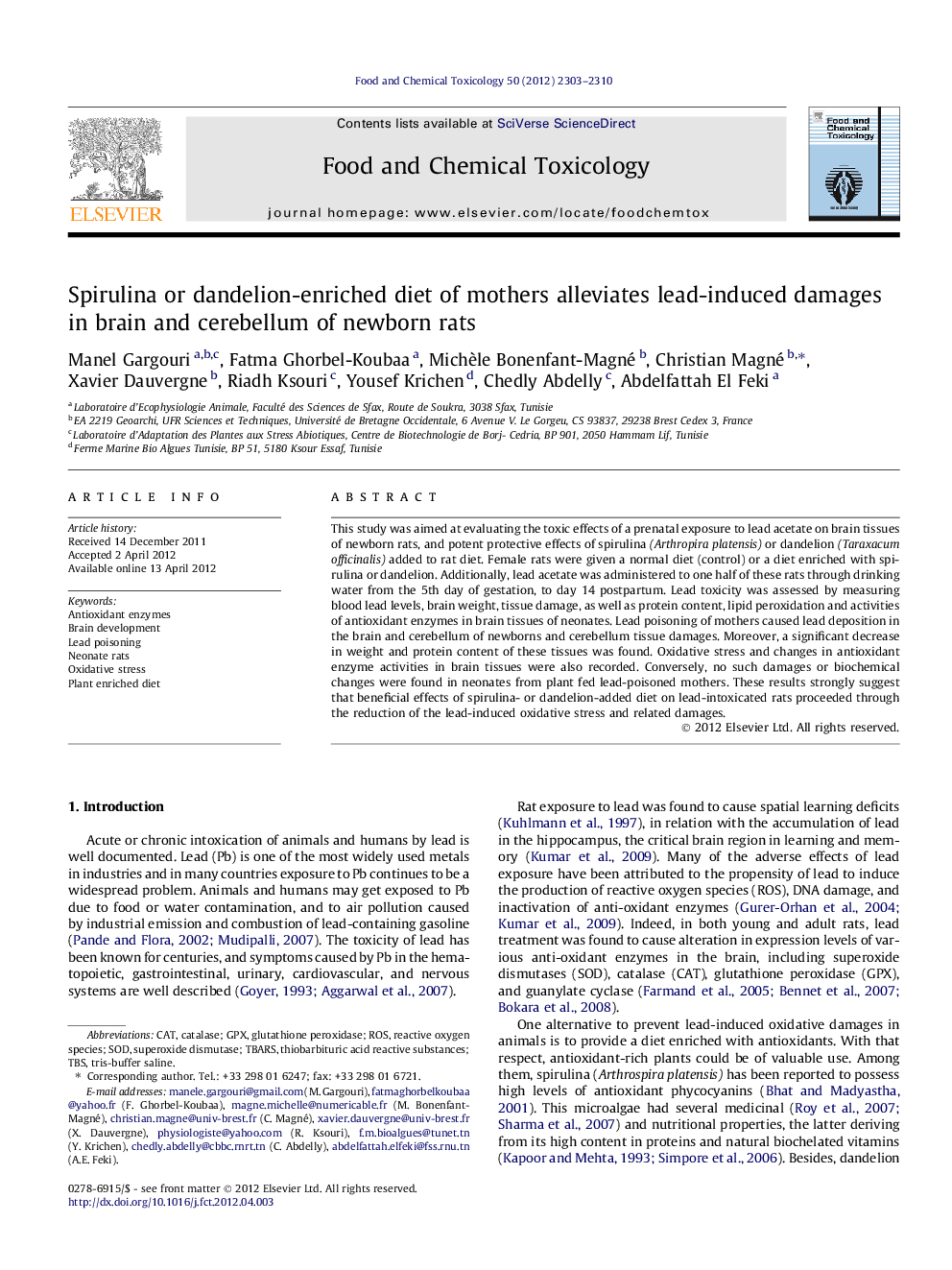| Article ID | Journal | Published Year | Pages | File Type |
|---|---|---|---|---|
| 5852567 | Food and Chemical Toxicology | 2012 | 8 Pages |
This study was aimed at evaluating the toxic effects of a prenatal exposure to lead acetate on brain tissues of newborn rats, and potent protective effects of spirulina (Arthropira platensis) or dandelion (Taraxacum officinalis) added to rat diet. Female rats were given a normal diet (control) or a diet enriched with spirulina or dandelion. Additionally, lead acetate was administered to one half of these rats through drinking water from the 5th day of gestation, to day 14 postpartum. Lead toxicity was assessed by measuring blood lead levels, brain weight, tissue damage, as well as protein content, lipid peroxidation and activities of antioxidant enzymes in brain tissues of neonates. Lead poisoning of mothers caused lead deposition in the brain and cerebellum of newborns and cerebellum tissue damages. Moreover, a significant decrease in weight and protein content of these tissues was found. Oxidative stress and changes in antioxidant enzyme activities in brain tissues were also recorded. Conversely, no such damages or biochemical changes were found in neonates from plant fed lead-poisoned mothers. These results strongly suggest that beneficial effects of spirulina- or dandelion-added diet on lead-intoxicated rats proceeded through the reduction of the lead-induced oxidative stress and related damages.
⺠Lead poisoning of mothers induces perturbations in brain development in neonates. ⺠Lead poisoning induces biochemical signs of oxidative stress in newborns. ⺠Plant-enriched diet provided to mothers may alleviate such damages in rat pups. ⺠Spirulina or dandelion consumption is proposed as a way to reduce the effects of lead intoxication.
